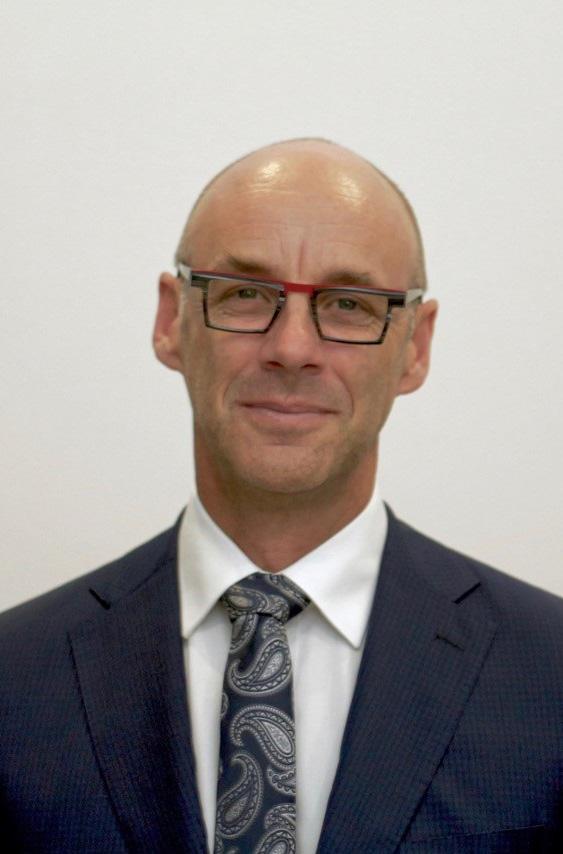
4 minute read
Dr Paul Browning: Innovation In Education
INNOVATION in EDUCATION

Advertisement
Dr Paul Browning is passionate about leadership. It is his belief that a primary role of any leader is to create a culture of trust to enable innovation to occur.
Paul trained as a primary teacher in the late 1980s. He brought to his teaching career a passion for creativity, and a sense of wonder about the world in which we live. For the past 20 years he has brought those same traits to his leadership of two schools, challenging traditional ways of teaching to ensure that creativity is nurtured and expressed by every student under his care. 35 www.intrapreneurmagazine.com
Paul’s take on improving the education sector through intrapreneurship is to depoliticise and de-standardise the agenda to a degree where each student can be wholly nurtured as individuals and become truly future-ready.
“An education worth having is one the develops the whole person, nurturing and growing their intrinsic sense of wonder and creativity along with their character. I believe that schools need to change so there is a stronger focus on developing every child’s capacity to be resilient global citizens, who are innovative thinkers with a heart for servant leadership,” he said. This is where strong, trustworthy leadership is so important. In order to enact real change within the tightly-bound confines of the current education system, an intrapreneur must step forward as leader, passionate leader, who operates with a strong sense of integrity that encourages others to follow.
As Paul explains: “We must be true to what we believe education should be about rather than willingly conform to the mandates handed down to us. We need to be passionate enough about our beliefs so as to cast a compelling vision that others will buy into. And finally, we need to have the


courage to stay the course, remain true to our beliefs and withstand the inevitable resistance to what we need to do.”
In an ideal world, Paul advocates for greater principal and teacher involvement when it comes to the development of educational policy and future direction of Australian schools. However, his focus at present is in implementing innovative changes with the scope of his current role – as headmaster at St Paul’s school in Queensland – to encourage the next generation of entrepreneurs and futurefocused students. St Paul’s school has developed a unique teaching approach called Realms of Thinking:
“A core element of our school’s purpose is to help students become innovative thinkers – and our Realms of Thinking are approaches to teaching and learning that help students master the basics while also growing their capacity to ask better questions, develop empathy, navigate failure and spark their imagination.
“What the Realms look like is a collection of 16 dispositions that nurture every student’s ability to think creatively. When clustered together, the dispositions form ways of working. For example, the ability to think like an innovator and utilise design thinking is a way of working. Entrepreneurialism is another way of working.
“Perhaps what separates our approach from the standard education model, however, is the development of a third pathway of learning in addition to the traditional academic and vocational pathways: an entrepreneurial pathway. Students who are interested in scaling their innovations can join our Centre
for Innovators and Entrepreneurs to support them in taking their products to market.”
This inspiring approach has the education sector taking note, with St Paul’s school picking up some impressive and meaningful awards for its previously unchartered methods in guiding the next generation towards a successful and fulfilled life. To name just a few accolades: St Paul’s school was listed as one of the top 40 most innovative schools in Australia by Educator Magazine in 2017; in 2018 an arm of Cambridge

University listed St Paul’s amongst the 100 most innovative learning organisations in the world; and at the Australian Education Awards, sponsored by the Educator Magazine, St Paul’s school picked up four awards out of 24 categories—the most of any school in Australia – which included categories of best strategic plan, best professional development program, best innovation in curriculum, and best principal in a non government school.
Pauls intrapreneurialism within the education sector has
38
seen him publish numerous articles on leadership and he is a regular guest speaker at leadership conferences both at home and internationally. Through his ground-breaking and inspirational work, Paul has been listed amongst the top 50 most influential people in education in Australia.
While his work remains in education, the importance of trust and leadership in strong intrapreneurialism is just as pertinent to any other sector, and Paul’s passion and ability to inspire is far-reaching.
“At the end of the day leadership is leadership no matter the context. It is my assertion that leadership is about two simple things: vision and trust. Great leaders cast a compelling vision and create a culture of trust which enables the innovation that needs to happen to achieve the vision.”
For more on Paul’s work, visit
compellingleadership.com.au/











